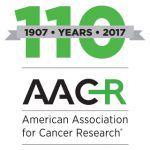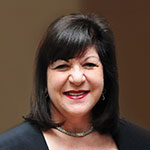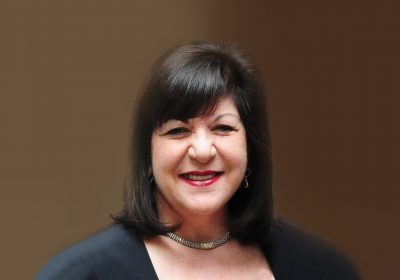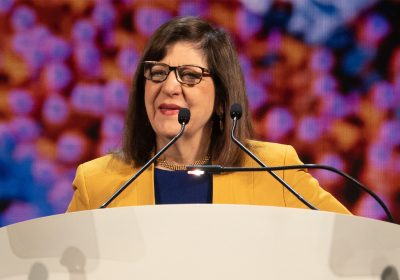The AACR: 110 Years in Support of Lifesaving Cancer Research
On May 7, 1907, 11 prominent physicians and scientists met at the Willard Hotel in Washington, D.C., to found the American Association for Cancer Research (AACR). Today, the AACR is the leading professional organization in the world dedicated to the prevention and cure of all cancers, with more than 40,000 members residing in the U.S. and 119 other countries.
This is an incredibly exciting time in the cancer field. In the United States, cancer death rates are declining. More people are living longer after a cancer diagnosis. These stunning advances are a testament to the unwavering and tireless dedication of people working in all sectors of the cancer sphere: researchers in academia, government, and industry; health care providers; policymakers; regulators; philanthropists; advocates; and patients, survivors, and their caregivers, family members, and friends.
 The AACR and its members have been at the forefront of every major advance against cancer. By igniting communication among the greatest minds in cancer research, the AACR has helped catalyze a revolution in laboratory cancer research that is fueling progress for the benefit of patients everywhere. Our rapidly expanding membership is the global brain trust of the cancer field, and our extensive portfolio of top oncology journals, cutting-edge scientific meetings, and educational workshops offers our members a unique platform for identifying, disseminating, and discussing the latest findings in cancer research.
The AACR and its members have been at the forefront of every major advance against cancer. By igniting communication among the greatest minds in cancer research, the AACR has helped catalyze a revolution in laboratory cancer research that is fueling progress for the benefit of patients everywhere. Our rapidly expanding membership is the global brain trust of the cancer field, and our extensive portfolio of top oncology journals, cutting-edge scientific meetings, and educational workshops offers our members a unique platform for identifying, disseminating, and discussing the latest findings in cancer research.
In addition, the AACR funds meritorious cancer research directly and in cooperation with industry and with philanthropic and advocacy organizations. The AACR advocates for robust federal funding for cancer research by communicating regularly with legislators and policymakers about the value of cancer research and biomedical science in conquering cancer.
The AACR’s name, reputation, and achievements are well known and highly respected in the cancer field. Yet among the public at large, the AACR is not as widely known. It is my sincere hope that this new publication, Leading Discoveries, will help raise awareness of the truly breathtaking progress fueled by the AACR and its members in saving lives from cancer.
In this first issue of Leading Discoveries, you can read about two eminent physician-scientists and longtime AACR members: Michael A. Caligiuri, MD, who is the 2017-2018 AACR President; and Waun Ki Hong, MD, an AACR Past President (2001-2002). Dr. Caligiuri is renowned for his research in immuno-oncology—the exciting field that undergirds the development of novel treatments using the body’s own immune system to fight cancer—and for his leukemia and lymphoma research. Dr. Hong’s groundbreaking research in head and neck cancer, laryngeal cancer, and lung cancer has established him as the foremost authority on preventing and treating these cancers.
You also can learn about June L. Biedler, PhD, who pioneered research on multidrug resistance—the ability of cancer cells to develop resistance to many types of chemotherapy. Dr. Biedler believed strongly in the importance of clearly communicating news about cancer research and treatment to the public. To further that goal, the AACR dedicated Dr. Biedler’s generous legacy gift to establish annual journalism prizes that recognize accurate, informative, and compelling reporting on cancer. Journalists honored with the AACR June L. Biedler Prize are acknowledged at the AACR Annual Meeting.
We’re excited to share in this issue the latest news about AACR Project GENIE, our organization’s international cancer registry. You can also read about the AACR’s Childhood Cancer Predisposition Workshop, NextGen Grants to stimulate innovative research by early-career investigators, and other AACR initiatives to support transformative breakthroughs in cancer science and medicine.
We now have the scientific knowledge and capability to deliver advances across the continuum of cancer care that were previously unimaginable. Despite the advances made against the many diseases we call cancer, there is a vital need for continued research insights and for the funding, both public and private, that will pay for the next wave of progress. I hope that these pages will reveal the pivotal role the AACR plays in supporting the research that is leading to future advances against cancer and the critical role the public plays in sustaining this important work to prevent, diagnose, intercept, and cure all cancers.
 Margaret Foti, PhD, MD (hc)
Margaret Foti, PhD, MD (hc)
AACR Chief Executive Officer





